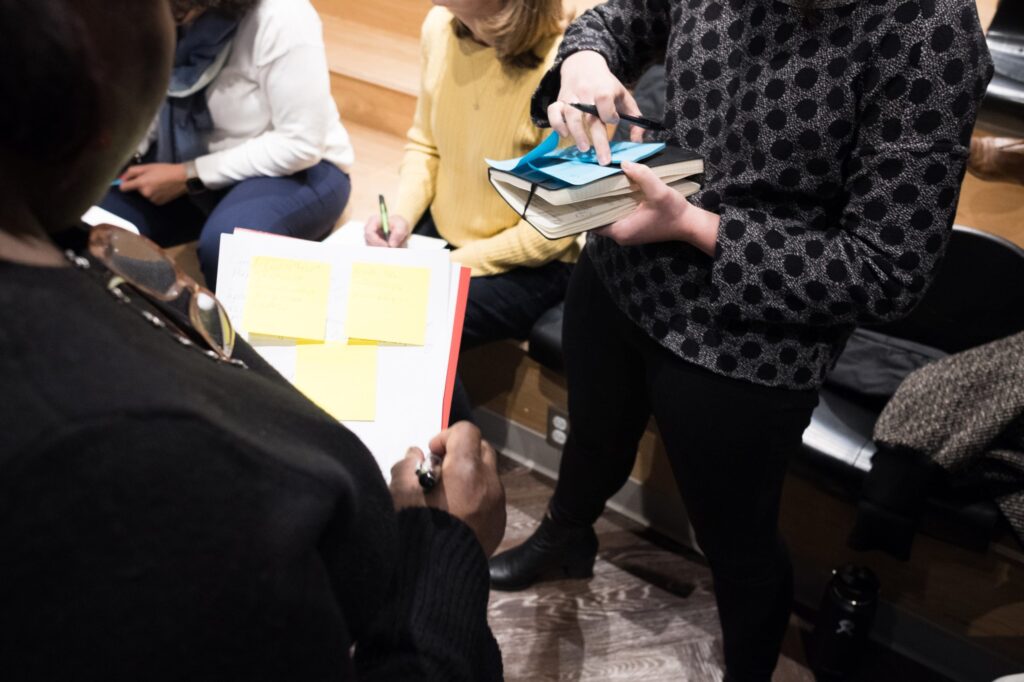The month of March was filled with conferences that spoke to the central message of the Tomorrow campaign. But none captured its essence quite like Imagine If, which took place on March 1-4.
Kate Robinson kicked off this celebration of the life and legacy of her father, the innovator and education thinker Sir Ken Robinson, with these words: “It is because we can imagine that we can create. We don’t just live in the world as we find it. We shape it.”
Then, before introducing a remarkable lineup of speakers and performances, Robinson asked the question that fascinated her father for decades and animates the work of so many Remake Learning network members today: “Imagine if we did things differently.”
The entire 11 hours of Imagine If are available for viewing at no cost. For educators and families, these speeches and performances offer a window into Robinson’s thinking about the massive need for learning innovation and the potential forms 21st-century learning could take.
Along with leaders in education and research, the wide range of speakers included creatives like groundbreaking chef and “multisensory cooking” pioneer Heston Blumenthal, who spoke about how Sir Ken Robinson encouraged creativity and imagination in others.
“This ability to imagine things that don’t exist is so precious to us,” Blumenthal said. “Knowledge gets you from A to B, but imagination gets you everywhere.”
Days after Imagine If took place, the LearnIt Live conference opened on March 8 with pre-scheduled, one-on-one meetings between education leaders and tech companies.
During the following four days of presentations, a global roster of top researchers and educators explored the impact of the pandemic on learning and the possible post-pandemic futures that are being pursued in schools and education organizations around the world.
Many presentations focused on questions of equity, including a presentation by Rebecca Winthrop, co-director of the Brookings Institution’s Center for Universal Education. Winthrop discussed the importance of harnessing the deeper connection and engagement between schools, parents and entire communities that have grown during the pandemic.
Schools are seeing new levels of “engagement and interaction with the parents, families, and other organizations in the community of education allies,” Winthrop said. And they can harness these connections to speed up the pace of progress and positive change in education.
This presentation and many more from the four days of LearnIt Live are now available at no cost for educators to watch online.
That same week, SXSW EDU was also taking place.
In the pre-pandemic world, the annual SXSW EDU conference held in-person in Austin, Texas, has been a valuable gathering place for many Pittsburgh-area administrators and teachers each year.
“South by Southwest has always been a forward-thinking educational conference focused on innovation,” says Tyler Samstag, director of Remake Learning. “So it aligns a lot with the work that’s happening in our region.”
In 2019, a group of more than two dozen southwestern Pennsylvania superintendents attended the event together, along with a diverse group of stakeholders from the Pittsburgh community. By traveling and sharing the experience of a range of panels about learning innovation, this group forged connections that grew once they returned home.
This year’s conference was entirely virtual. But with vaccines increasingly available, the hope is that next spring a large contingent of people from the Pittsburgh region will attend an in-person SXSW EDU – assuming that happens in 2022. A call for proposals begins in the summer prior to the conference, Samstag says, and then people vote via SXSW EDU’s “panel picker.” Remake Learning helps promote any proposals from local educators, so that members of the Pittsburgh community can vote for them.
For now, online content from this year’s virtual event is available for those who purchased passes to attend. Major topics included several subjects that are central to the Tomorrow campaign, including equity and justice, the future of post-pandemic education and the importance of civics education.
